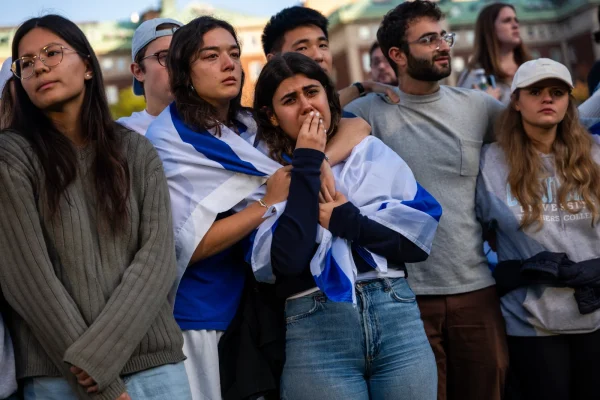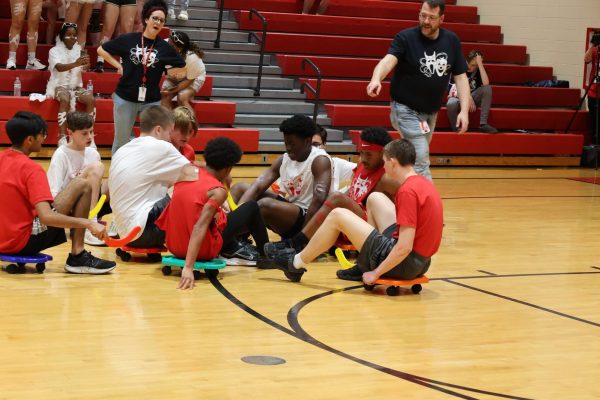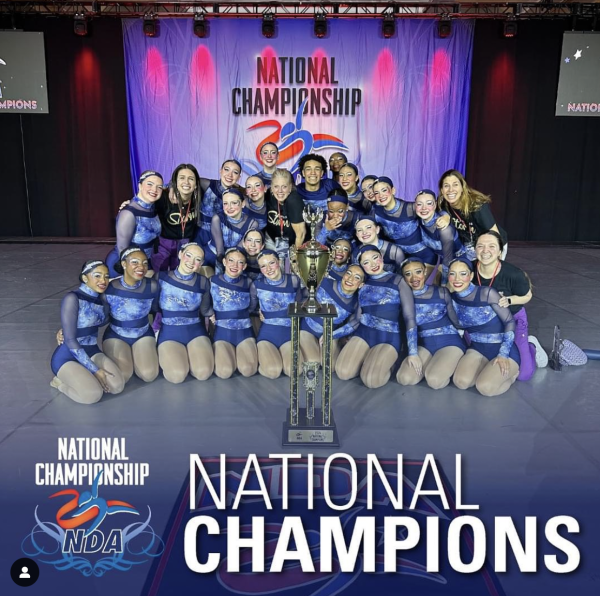Minneapolis police execute a no-knock warrant and fatally shoot a 22-year-old
Many residents are calling for a ban on no-knock warrants following the death of Minneapolis resident Amir Locke

Protestors demonstrating in the streets of Minneapolis on February 8
February 28, 2022
Minneapolis again found itself in the grips of another alleged instance of police brutality when 22-year-old Amir Locke was shot and killed by a police officer who entered an apartment with a SWAT team on a no-knock search warrant on Wednesday, February 2.
In a shooting located miles away from the murder of George Floyd, Officer Mark Hanneman alongside other officers entered Apartment 701 looking for Locke’s cousin, Mekhi Speed, and two other people implicated in the killing of Otis Elder in early January during a robbery.
Body-camera footage was released days after the death of Locke, which shows a 10-second period between when the officers entered the apartment and the fatal shots delivered by Hanneman.
“We must remain focused on the fact that Amir was an innocent young man of a raid gone terribly wrong, who is now the latest statistic and victim of the dangerous and intrusive no-knock warrant techniques that must be banned,” attorneys representing the Locke family said.
The no-knock warrant has been the main topic of discussion in this case as people rally to ban the law. On the other hand, the Minneapolis Police Department [MPD] has justified the utilization of the warrant in this case.
“A no-knock warrant enables officers to execute the warrant more safely by allowing officers to make entry into the apartment without alerting the suspects inside,” St. Paul officer Daniel Zebro wrote in additional warrant requests after the original warrants were filed. “This will not only increase officer safety, but it will also decrease the risk for injuries to the suspects and other residents nearby.”
The MPD initially filed a search warrant requesting access to three apartments in the building, including apartment 701, but in the following days, three new warrants were filed and signed by Zebro explaining why a no-knock warrant needed to be authorized.
According to the Washington Post, “…a source close to the investigation said Minneapolis police refused to participate in the operation unless it was a no-knock raid.”
With the uproar surrounding the death of Locke, a statement was given by interim Minneapolis police chief Amelia Huffman in a news conference breaking down the shooting and the actions of the SWAT officers.
“Both a no-knock and a knock search warrant were obtained for those locations so that the SWAT team could assess the circumstances and make the best possible decision about entry,” Huffman said. “They used a key to open the door and announced ‘police search warrant’ before they crossed the threshold. The team was announcing ‘police search warrant’ as they proceeded into the apartment.”
During the news release, the sequence of events was brought into question as some people believe the officers did not announce ‘police search warrant’ until they had crossed the threshold of the apartment, to which Huffman said, “I definitely encourage everyone to view the video and make that assessment for themselves.
With the public casting a spotlight on the no-knock warrant that they believe to be the reason why Locke was fatally shot since he appears to not have had any time to react to the officers entering the apartment, people urge a ban on no-knock warrants.
“I stand here to say you are going to pass the Amir Locke Law,” Reverend Al Sharpton said. “Enough is enough. Amir has a name. His name wasn’t on your warrant, but his name is going to be in your law books.”
The Locke family, as well as the world, continues to mourn the loss of Amir who is arguably another victim of police brutality as people rally for accountability in cases similar to his.
“A mother should never have to see her child executed in that type of way,” Karen Wells, Locke’s mother, said. “I gave birth to Amir. Not Minneapolis. I did. And you all took him from me.”











